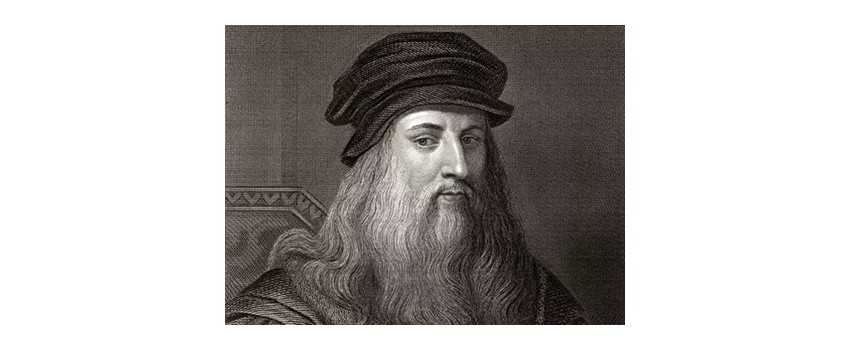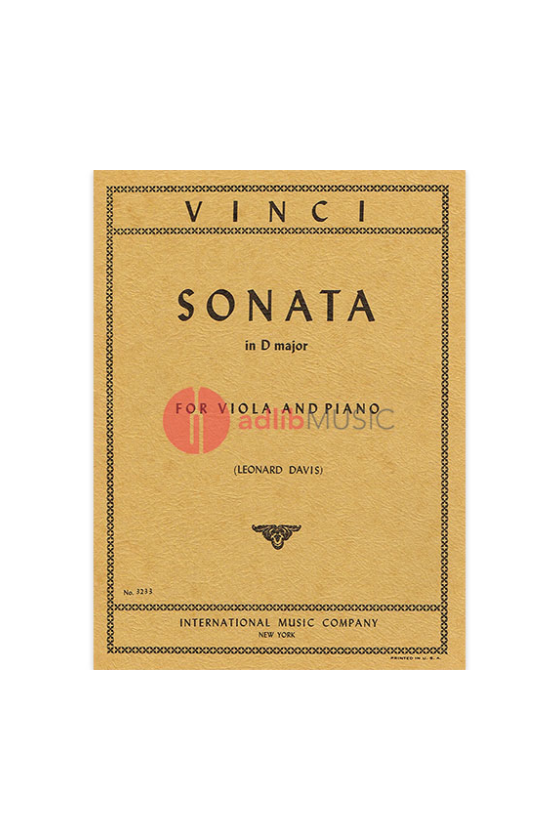- MenuBack
- Instruments
- Strings
- Violin Strings
- Violin Strings A-N
- Alphayue Violin Strings by Thomastik-Infeld
- Ascente Violin Strings by D'Addario
- Aurora Violin Strings by Larsen
- Chromcor Violin Strings by Pirastro
- Dominant Violin Strings by Thomastik-Infeld
- Eudoxa Violin Strings by Pirastro
- Evah Pirazzi Violin Strings by Pirastro
- Evah Pirazzi Gold Violin by Pirastro
- Goldbrokat Violin E Strings
- Helicore Violin Strings by D'Addario
- Hill Violin E String by W. E. Hill & Sons
- Jargar Violin Strings
- Kaplan Violin Strings by D'Addario
- Larsen Violin Strings
- Maestro Violin Strings
- Dynamo Violin Strings by Thomastik-Infeld
- Violin Strings O-R
- Obligato Violin Strings
- Oliv Violin Strings
- Piranito Perpetual Strings
- Opal Titan Violin Strings
- Passione Violin Strings
- Peter Infeld Violin Strings
- Miscellaneous Violin Strings
- Piranito Violin Strings
- Pirastro Gold Violin Strings
- Prelude Violin Strings
- Pro-Arte Violin Strings
- Protos Violin Strings
- Rondo Violin Strings
- Violin Strings S-Z
- Violin Strings A-N
- Viola Strings
- Viola Strings A-O
- Viola Strings P-Z
- Cello Strings
- Cello Strings A-O
- Alphayue Cello Strings
- Aurora Cello Strings by Larsen
- Chorda Cello Strings
- Chromcor Cello Strings
- Clarendon Gold Strings for Cello
- Corelli Cello Strings
- Dominant Cello Strings
- Eudoxa Cello Strings
- Evah Pirazzi Cello Strings
- Helicore Cello Strings
- Jargar Cello Strings
- Kaplan Cello Strings
- Larsen Cello Strings
- Lenzner Cello Strings
- Maestro Cello Strings
- Obligato Cello Strings
- Opal Titan Cello Strings
- Cello Strings P-Z
- NS Design Electric Cello Strings
- Passione Cello Strings
- Permanent Cello Strings
- Perpetual Cello Strings
- Piranito Cello Strings
- Precision Cello Strings by Thomastik-Infeld
- Prelude Cello Strings
- Prim Cello Strings
- Rondo Cello Strings
- Rostanvo Cello Strings
- Spirit Cello Strings
- Spirocore Cello Strings
- Versum Cello Strings
- Warchal Cello Strings
- ZMT - C Extension Cello Strings
- Cello Strings A-O
- Double Bass Strings
- Double Bass Strings
- Belcanto Double Bass Strings
- Dominant Double Bass Strings
- Eudoxa Double Bass Strings
- Evah Pirazzi Double Bass Strings
- Helicore Double Bass Strings
- Kaplan Double Bass Strings
- Maestro Double Bass Strings
- NS Electric Double Bass Strings
- Obligato Double Bass Strings
- Perpetual Double Bass Strings by Pirastro
- Precision Double Bass Strings
- Prelude Double Bass Strings
- Spirocore Double Bass Strings
- Superflexible Double Bass Strings
- Double Bass Strings
- Bows
- Cases
- Accessories
- Learn - All Grades
- Beginner Methods A-N
- Abracadabra
- Adventures in Violinland
- The ABC's books
- All for Strings
- Artistry in Strings
- A Tune A Day
- Blackwell Books
- Colour Strings Books
- Edward Huws Jones
- Encore On Strings
- Essential Elements
- Flying Start for Strings
- L Fin Beginning Ensemble Series
- Katherine and Hugh Colledge
- Mary Cohen Books
- My First Pieces & My Next Pieces
- Nelson Books
- New Directions for Strings
- Perform
- Violin Sheet Music
- Composers Violin A-C
- Accolay, Jean Baptiste
- Achron, Joseph Yulyevich
- Albinoni, Tomaso
- Arne, Thomas Augustine
- Bach, Johann Sebastian
- Beethoven, Ludwig van
- Bloch, Ernest
- Beriot, Charles Auguste De
- Brahms, Johannes
- Bridge, Frank
- Bruch, Max
- Carse, Adam
- Campagnoli, Bartolomeo
- Cerulli, Bob
- Chausson, Ernest
- Chopin, Frédéric François
- Copland, Aaron
- Corelli, Arcangelo
- Corigliano, John
- Composers Violin D-G
- Dancla, Charles
- Debussy, Claude
- Delius, Frederick
- De Falla, Manuel
- Dinicu, Grigoraș Ionică
- Doflein, Elma
- Drdla, Franz
- Dvorak, Antonin
- Eccles, Henri
- Edwards, Ross
- Elgar, Edward
- Faure, Gabriel
- Finzi, Gerald
- Fiocco, Joseph Hector
- Franck, César-Auguste
- Gade, Jacob
- Guareschi, Giovannino
- Giazotto, Remo
- Górecki, Henryk
- Glazunov, Alexander
- Composers Violin H-K
- Composers Violin L-M
- Composers Violin N-T
- Perlman, Itzhak
- Paganini, Niccolò
- Power, James
- Prokofiev, Sergei
- Rachmaninoff, Sergei
- Ravel, Maurice
- Rieding, Oskar
- Rimsky-Korsakov, Nikolai
- Rode, Jacques Pierre Joseph
- Saint-Saens, Camille
- Sarasate, Pablo de
- Schumann, Robert
- Schubert, Franz
- Schradieck, Henry
- Seitz, Friedrich
- Shostakovich, Dmitri
- Sibelius, Jean
- Smetana, Bedrich
- Spohr, Louis
- Solos for Young Violinists
- Strauss, Richard
- Stravinsky, Igor
- Suk , Josef
- Szelenyi, Istvan
- Szymanowski, Karol
- Tartini, Giuseppe
- Tchaikovsky, Pyotr Ilyich
- Telemann, Georg Philipp
- Piazzolla, Astor
- Composers Violin U-Z
- Popular Violin Sheet Music
- Other Violin Sheet Music
- Composers Violin A-C
- Viola Sheet Music
- Composers Viola A-C
- Accolay, Jean-Baptiste
- Anderson, Kenneth
- Bach, Johann Christian
- Bach, Carl Philipp Emanuel
- Bach, Johann Sebastian
- Bartók, Béla
- Bax, Arnold
- Beethoven, Ludwig van
- Bériot, Charles Auguste de
- Biber, Heinrich Ignaz Franz
- Bloch, Ernest
- Boccherini, Luigi
- Böhm, Karlheinz
- Bohm, Theobald
- Bowen, York
- Brahms, Johannes
- Bridge, Frank
- Britten, Benjamin
- Bruch, Max Felix
- Butterworth, Arthur
- Carter, Elliott
- Clarke, Rebecca
- Corelli, Arcangelo
- Corrette, Michel
- Composers Viola D-G
- Dale, Benjamin
- Dean, Brett
- Debussy, Claude
- Dittersdorf, Carl Ditters von
- Dodgson, Stephen
- Dounis, Demetrius Constantine
- Dvořák, Antonín
- Eccles, Henry
- Elgar, Edward
- Eliot, Norton, Charles
- Enesco, Georges
- Fauré, Gabriel
- Fiocco, Joseph-Hector
- Forbes, Watson
- Franck, Cesar
- Francoeur, François
- Fuchs, Lillian
- Gershwin, George
- Glazunov, Alexander
- Glinka, Mikhail
- Granados, Enrique
- Composers Viola H-K
- Handel, George Frideric
- Handoshkin, Ivan Evstafeivich
- Haydn, Joseph
- Hindemith, Paul
- Hoffmeister, Franz Anton
- Hovhaness, Alan
- Hubay, Jenő
- Hyde, Miriam Beatrice
- Jacob, Gordon
- Joachim, Joseph
- Jones, Matthew
- Kalliwoda, Johann Wenzel
- Kayser, Heinrich Ernst
- Kreisler, Fritz
- Kreutzer, Rodolphe
- Küchler, Ferdinand
- Jenkinson, Ezra
- Composers Viola L-M
- Composers Viola N-R
- Pachelbel, Johann
- Nyman, Michael
- Onslow, George
- Paganini, Niccolò
- Pergolesi, Giovanni Battista
- Piatigorsky, Gregor
- Piazzolla, Astor
- Prokofiev, Sergei
- Puccini, Giacomo
- Purcell, Henry
- Rachmaninoff, Sergei
- Ravel, Maurice
- Reger, Max
- Reinecke, Carl
- Richardson, Alan
- Rieding, Oskar
- Rimsky-Korsakov, Nikolai Andreyevich
- Rivier, Jean
- Rode, Jacques Pierre Joseph
- Composers Viola S-T
- Composers Viola U-Z
- Popular Viola Sheet Music
- Other Viola Sheet Music
- Composers Viola A-C
- Cello Sheet Music
- Composers Cello A-C
- Andriessen, Louis
- Bach, Johann Sebastian
- Bantock, Granville
- Bartók, Béla
- Beethoven, Ludwig van
- Bloch, Ernest
- Boccherini, Luigi
- Boëllmann, Léon
- Brahms, Johannes
- Bréval, Jean-Baptiste
- Bridge, Frank
- Britten, Benjamin
- Bruch, Max
- Caix d'Hervelois, Louis de
- Carse, Adam
- Cassadó, Gaspar
- Cirri, Giovanni Battista
- Clarke, Rebecca
- Composers Cello D-G
- Dare, Marie
- Davydov, Karl
- Debussy, Claude Achille
- Fesch, Willem de
- Dvorak, Antonin Leopold
- Eccles, Henry
- Elgar, Sir Edward
- Falla, Manuel de
- Faure, Gabriel-Urbain
- Ferguson, Howard
- Feuillard, Louis
- Foss, Lukas
- Franchomme, Auguste
- Francoeur, François
- Gabrieli, Giovanni
- Galliard, Johann Ernst
- Glazunov, Alexander
- Goens, Daniël van
- Goltermann, Georg
- Guymer, Ingrid
- Granados, Enrique
- Gounod, Charles François
- Composers Cello H-K
- Composers Cello L-M
- Composers Cello N-R
- Composers Cello S-T
- Saint-Saëns, Camille
- Sammartini, Giuseppe
- Sassmannshaus, Kurt
- Schubert, Franz
- Schumann, Robert Alexander
- Sculthorpe, Peter
- Senaillé, Jean Baptiste
- Shostakovich, Dmitri
- Sibelius, Jean
- Squire, William Henry
- Strauss, Richard
- Stravinsky, Igor
- Tartini, Giuseppe
- Tchaikovsky, Pyotr Ilyich
- Telemann, Georg Philipp
- Trowell, Arnold
- Composers Cello U-Z
- Popular Cello Sheet Music
- Other Cello Sheet Music
- Composers Cello A-C
- Play Together
Vinci, Leonardo
In opera, certain composers leave an indelible mark on the genre. One such luminary is Leonardo Vinci, an Italian composer born in 1690. Vinci, alongside Nicola Porpora and Giovanni Battista Pergolesi, was one of the founders of the Neapolitan opera style. His contributions to the development of opera are immeasurable, and his works continue to captivate audiences to this day.
Early Life and Musical Journey
Leonardo Vinci's musical journey began in the late 17th century. Although details about his early life are scarce, he was born in 1690. Vinci's talent for composition emerged at a young age, and he soon became a prominent figure in the musical circles of Naples.
Lo cecato fauzo: A Comic Opera in the Neapolitan Dialect
Vinci's first known work, "Lo cecato fauzo" (1719), was a comic opera performed in the Neapolitan dialect. This opera showcased Vinci's ability to infuse humour and wit into his compositions. The success of "Lo cecato Fauzo" laid the foundation for Vinci's future endeavours in the world of opera.
The Role of Chapelmaster and Conductor in Naples
After the success of his debut opera, Vinci was appointed as the chapelmaster for the prince of Sansevero. This position allowed him to refine his compositional skills further and gain valuable experience in leading musical ensembles. In 1725, Vinci's talent and reputation led to his appointment as the conductor of the royal chapel in Naples, a role he held until his untimely death in 1730.
Silla Dittatore: A Severe Opera Launches Vinci's Career
In 1723, Vinci's opera "Silla Dittatore" marked a significant turning point in his career. This opera, the first of Vinci's severe extant works, showcased his ability to evoke intense emotions through his music. The success of "Silla dittatore" propelled Vinci into the spotlight, leading to a prolific period of composition.
Pioneering the Neapolitan Style of Opera
Vinci's contributions to developing the Neapolitan opera style cannot be overstated. He composed around 40 operas, most written for Naples and some for Rome. Melodic richness, expressive vocal lines, and dramatic intensity characterized Vinci's operas. His innovative approach to opera composition set the stage for future composers.
Songs: A Glimpse into Vinci's Artistry
In addition to his operas, Vinci also composed a collection of songs. These songs, a group of arias extracted from his operas, were published in London in 1758. This publication allowed a wider audience to experience Vinci's artistry and appreciate the beauty of his melodies.
Beyond Opera: Oratorios, Masses, and Motets
While Vinci is primarily known for his contributions to opera, his musical genius extended beyond the operatic realm. He also composed oratorios, masses, and motets, showcasing his versatility as a composer. These sacred compositions demonstrated Vinci's ability to create deeply moving and spiritually uplifting music.
Legacy and Influence
Leonardo Vinci's impact on the world of opera cannot be overstated. His pioneering work in the Neapolitan style laid the foundation for future composers to explore and expand upon. Vinci's ability to capture the essence of human emotions through music resonates with worldwide audiences.
Conclusion
Leonardo Vinci, a trailblazer in opera, left an indelible mark on the genre. His innovative approach to composition, melodic richness, and expressive vocal lines set him apart as a true musical genius. Although his life was cut short, Vinci's legacy lives on through his timeless works. As we continue to celebrate the beauty and power of opera, we must remember the profound influence of Leonardo Vinci, the pioneer of Neapolitan opera.

1 product.
Boxed:
Sticky Header:
Sticky Add To Cart
Sticky Footer:
Font:

